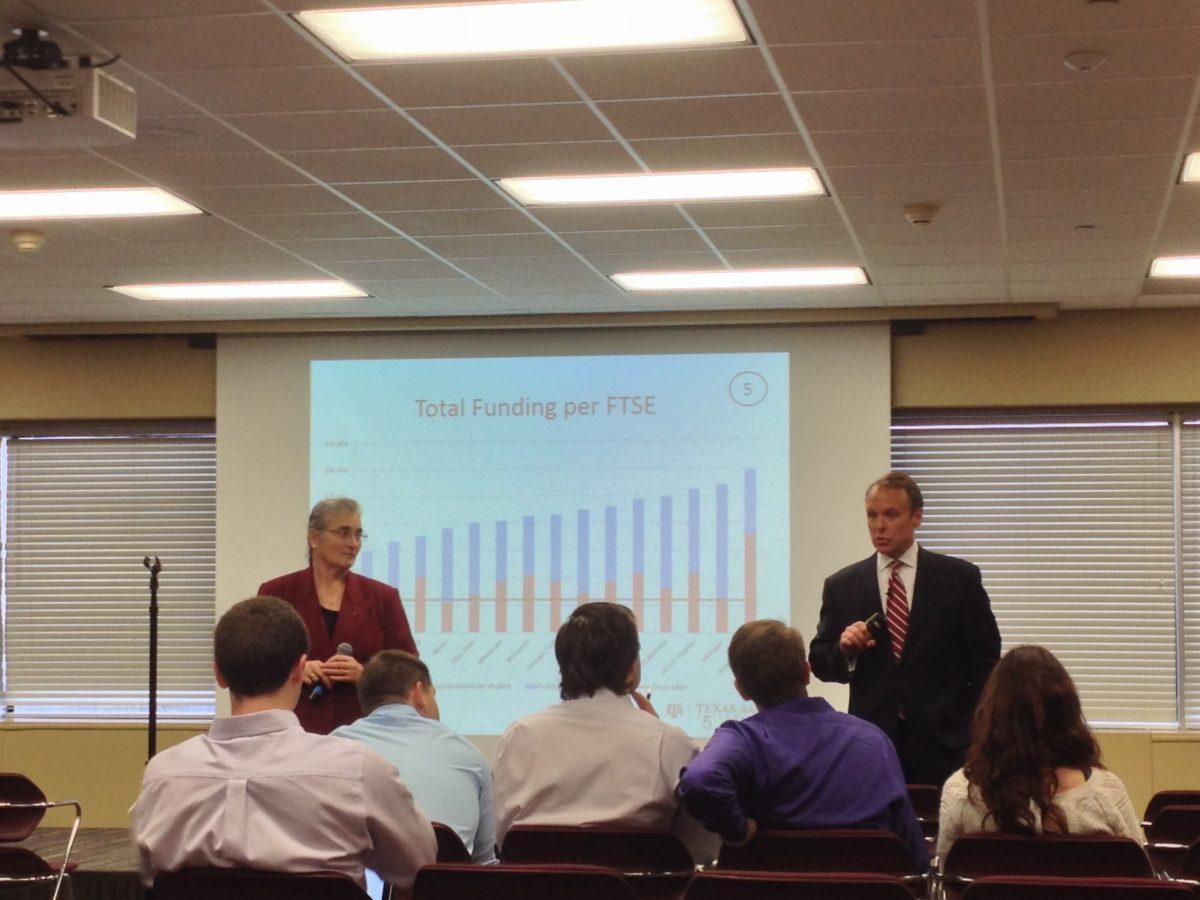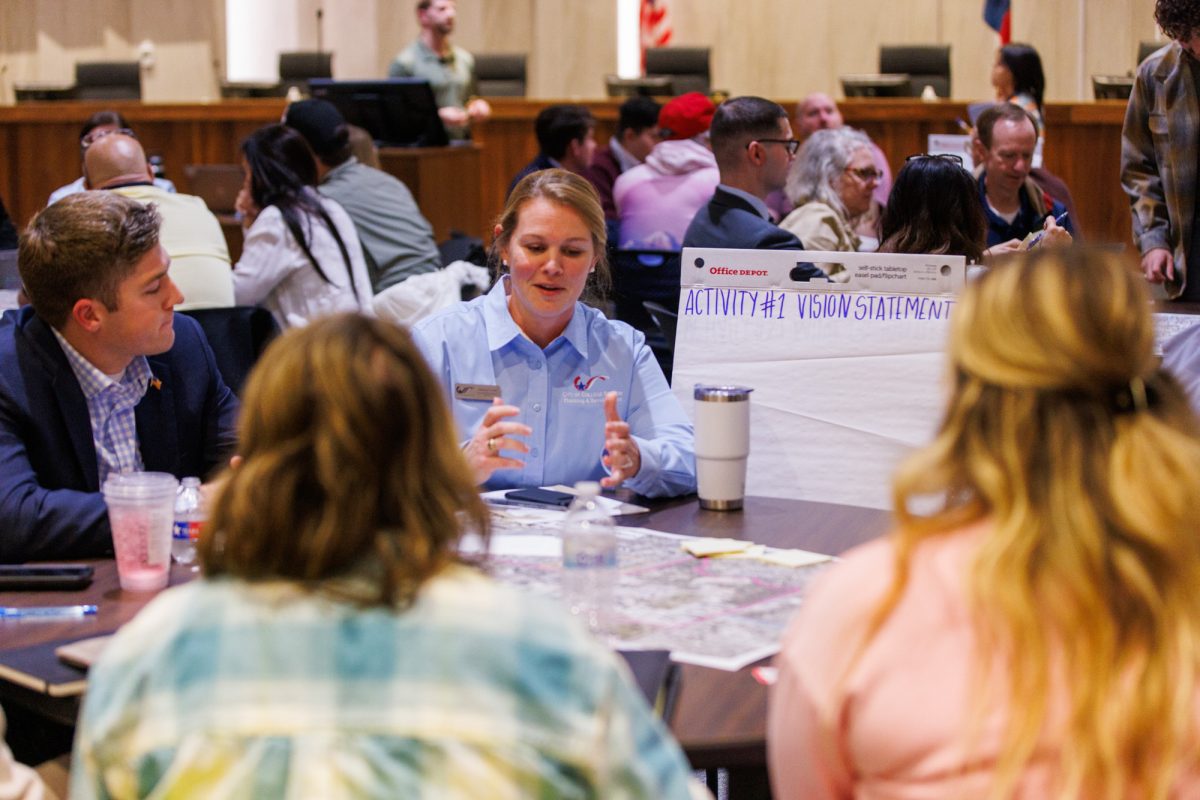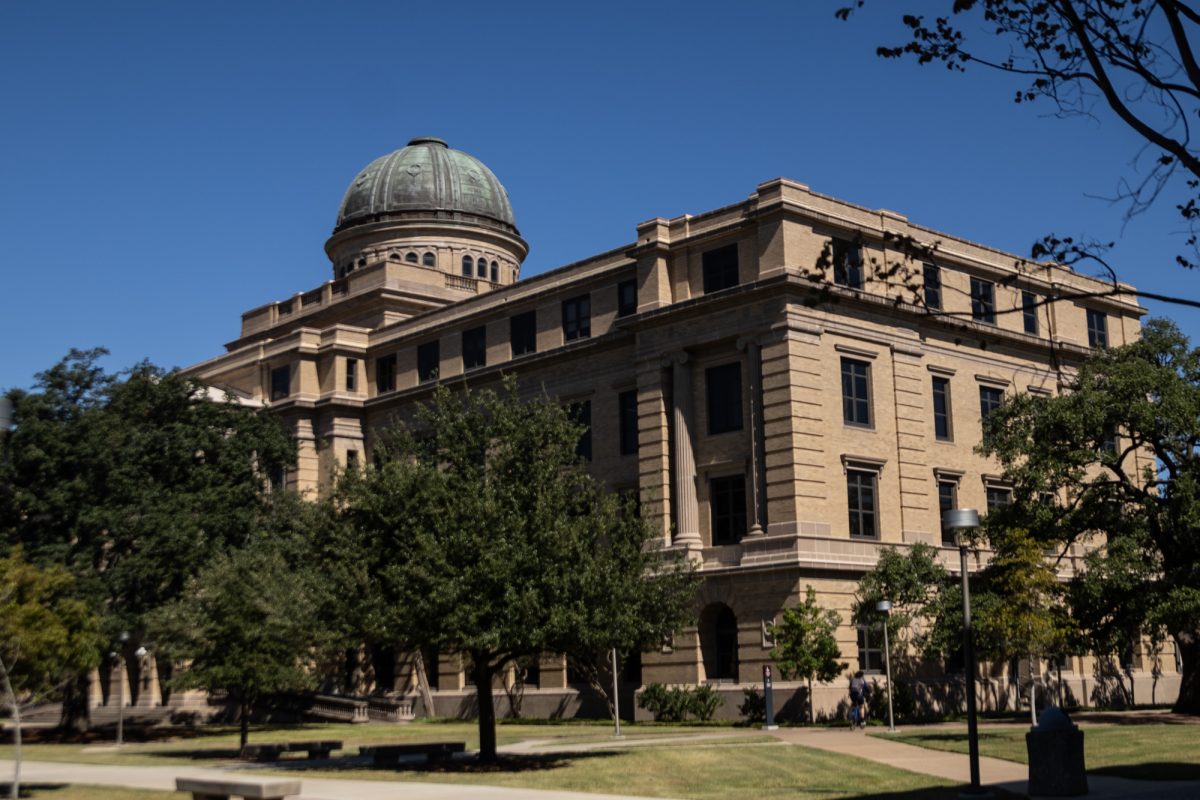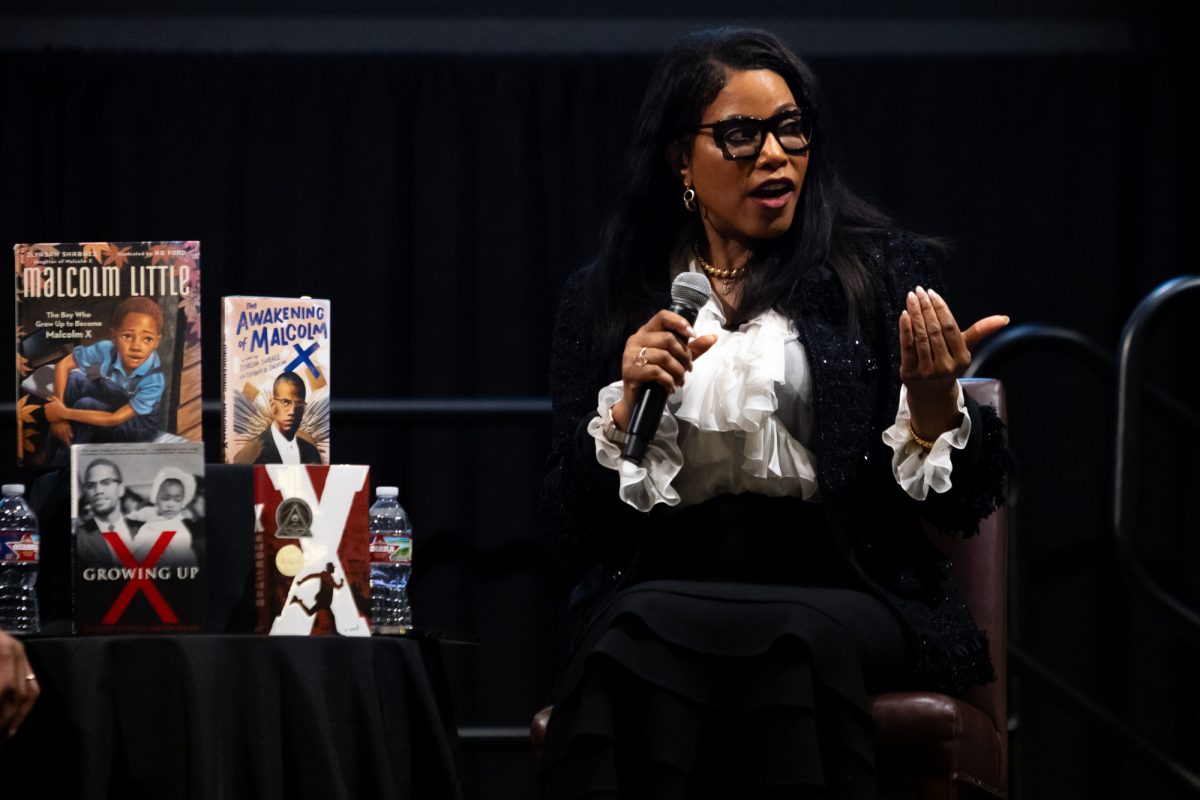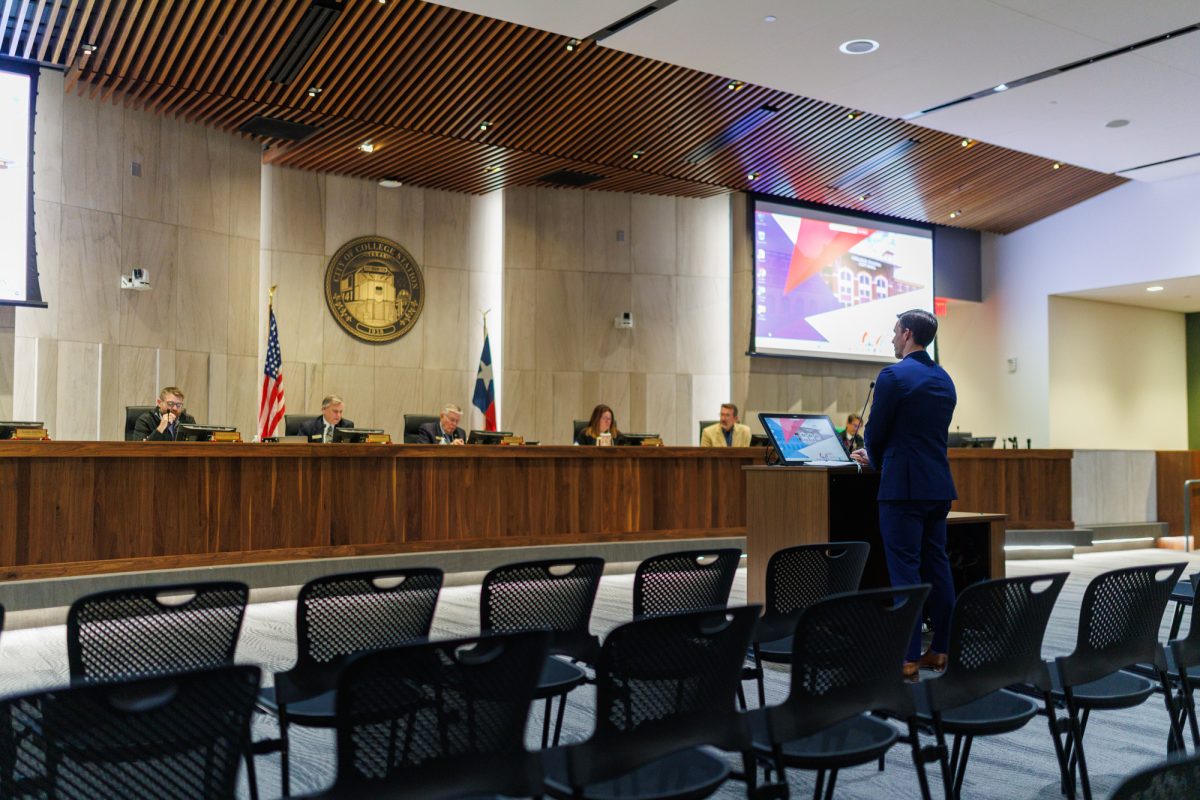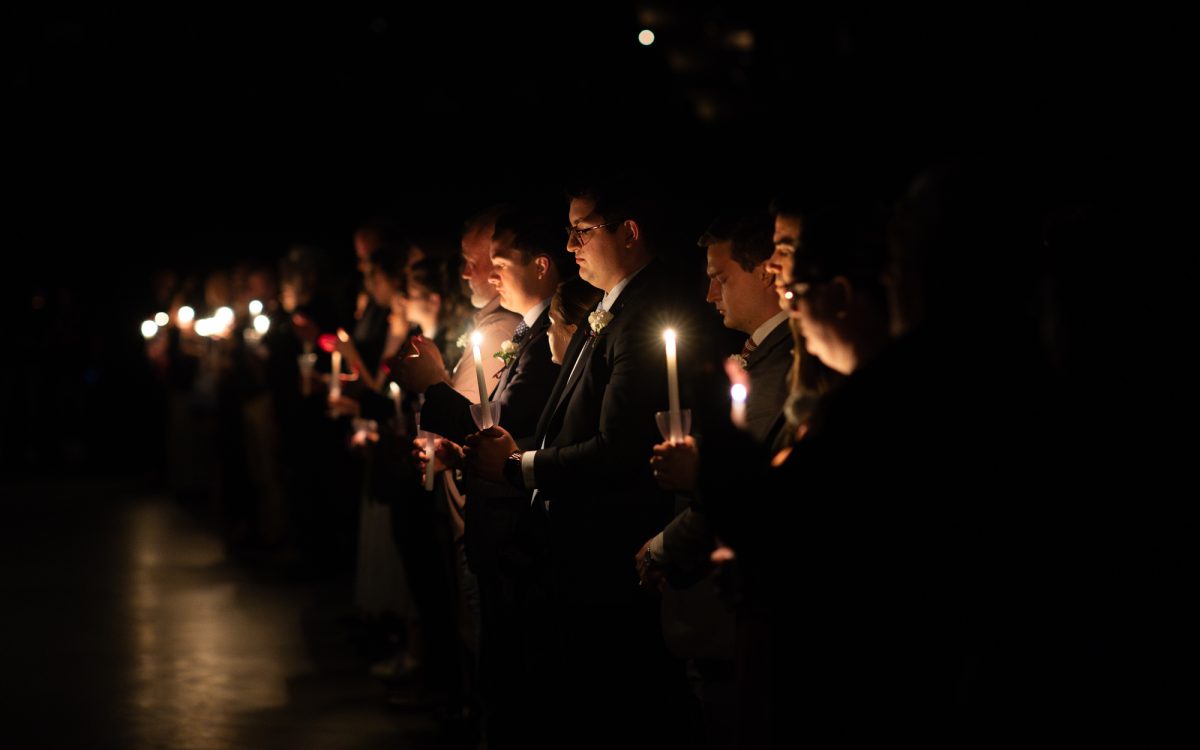University officials explained the reasoning behind a 2.2 percent increase to tuition at a public hearing meeting Monday that garnered roughly 25 people.
According to the Texas Education Code, state-funded institutions but may not increase tuition without holding a public hearing. The public hearing that was held Monday afternoon will be followed by another tuition hearing Tuesday from 9 to 11 a.m. in Rudder 601.
President Michael Young, Provost Karan Watson and Vice President of Finance Jerry Strawser said incoming freshman will see a 2.2 percent increase to the flat rate tuition next year. Tuition for currently enrolled students will remain unchanged from what they paid their freshman year. Additionally, officials said freshmen entering in fall 2016 and 2017 will have the new option of choosing a variable rate. Under this option, tuition would change depending on the Higher Education Price Index, a measurement specifically designed to track the main cost drivers in higher education.
Strawser said the important thing to realize about the tuition increase is it is not going to fund new projects — it only allows the university to cover the cost of inflation.
“The 2.2 percent just lets us tread water, it doesn’t let us add new things,” Strawser said. “All we’re doing at this point, for the next two years, is committing ourselves to covering inflation.”
Provost Watson said A&M takes pride in being a world class university, but this requires realistic attention and maintenance.
“We take great pride in the fact that we’re an elite university that’s not elitist,” Watson said “But we do look at, ‘Are we going to be able to provide the value and the excellence that people are coming to Texas A&M for, instead of going to a much cheaper community college or something like that?’”
Joseph Hood, chair of the Student Senate Finance Committee, said he was happy with the level of communication university administration has had with student government.
“My feeling on the hearing as a whole is that it’s reflective of what the university said, and that they’re going to commit to being as open about this process as possible,” Hood said.
Levi McClenny, executive vice president for the executive branch of the Student Government Association, said he thought Young, Watson and Strawser defended the increases well.
“That being said, it is our position to keep the student fees low,” McClenny said. “So any increase in fees is never good news for students, but that being said, they can be defended in such a fashion where they’re going to help students in the long run, that’s the best that we can hope for.”




